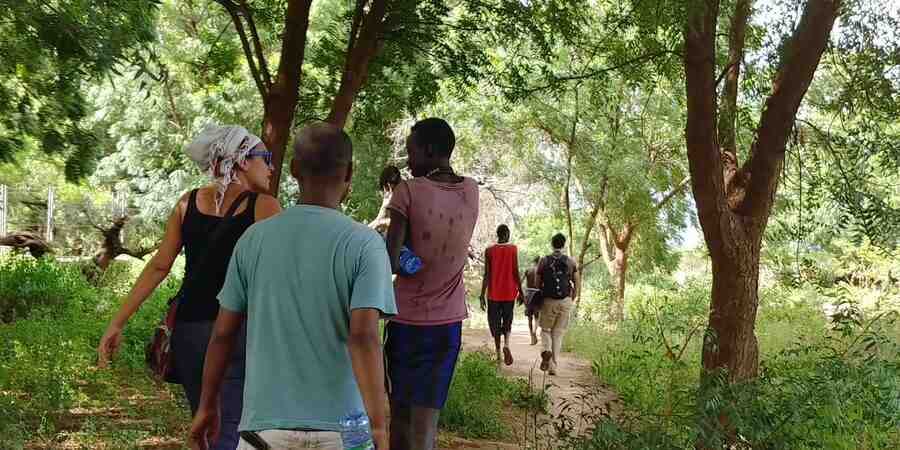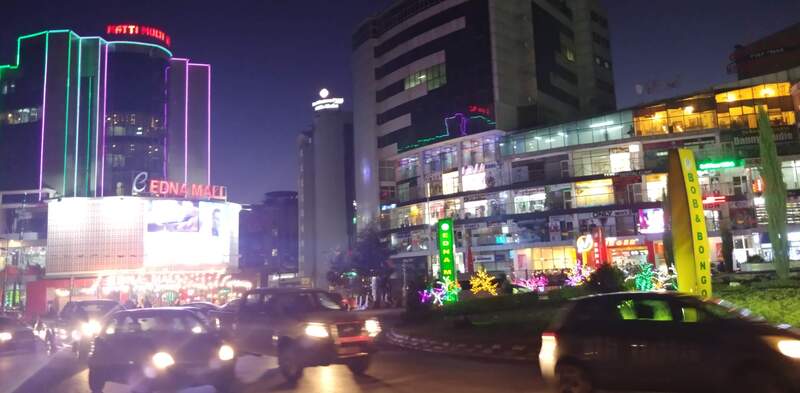Is it safe to travel to Ethiopia? How safe Ethiopia is? Ethiopia is a very safe country. Serious and violent crimes are rare. As a country in Africa, Ethiopia is generally considered an unsafe destination. However, Ethiopian cities are safer than many big cities like London, New York, or Los Angeles. Violent crimes rarely occur in many parts of the country. Although Ethiopia remains a poor country, it has one of the fastest-growing economies in the world and accounts for around 10% of GDP growth.
Various regions of the country are rich in Nature, culture, and history. The people also have a strong communal relationship within the society and strong religious beliefs. About 99% of Ethiopian believes religion has a major role in their life. All this makes Ethiopia among the most hospitable in the world. Thousands of tourists visit the country each year without major incidents. It is also absolutely true, there are petty crimes that will bring unpleasant experiences. though If you take the Normal precautions and avoid certain areas that are not advisable to visit, traveling to Ethiopia is safe.
This useful travel safety information is to inform you and avoid unpleasant experiences, not to make you uncomfortable.

Travel advisories
The US State Department has announced, due to COVID-19, that it is recommended to reconsider traveling to Ethiopia and to exercise more cautions in Ethiopia, as civil unrest, and War continues to erupt and communications disruptions. Do not travel to high-risk areas. In particular, to the Tigray region of Ethiopia and its bordering areas with northern Amahara and north Afar regions, border areas with Somalia, Kenya, Sudan, South Sudan, and Eritrea. The Travel Advisors of the British and Canadian governments issued similar advisories to exercise while traveling to Ethiopia. Read the full travel notice by clicking the links.
Petty Crimes
Petty crimes (pickpockets, bag, and cell phone theft) can happen anywhere in the world. Tourists can become victims of this opportunistic crime due to the false assumption that they have a lot of money. It is mainly held in markets, bus stations, taxi stands, tourist attractions, restaurants, nightclubs, and crowded places.
Our Advice on minimizing being of a victim of Theft.
- Do not expose jewelry, cash, valuable equipment (such as cameras), and mobile phones.
- In ADDIS ABABA, avoid a group of boys selling candy, gum, cigarettes, magazines or asking for help on the street. It is a common tactic to make you Distract. Please note that there are honest people.
- If a crook spits on you avoid him and get away quickly.
- If someone bumps into you, avoid body contact, and leave quickly.
- Avoid talking with strangers.
- Beware of suspicious activity.
- Do not leave luggage in unattended cars, hotels, and restaurants.
- Use a hidden money belt, security, neck and waist bag.
- Make sure your car doors and windows are locked
- When taking public transportation, buses, and trains, please pay attention to your surroundings.
- Get only what you need when you go out.
- Please store your valuables in the hotel safe.
- Put your passports, money, and credit cards in a safe place where only you can reach.
- Save a copy of your passport and credit card.
Going out at night safely
A trip to Ethiopia means an exciting cultural experience, full of exotic local food, drinks, and dancing. Going out with a trusted friend and the streets wise, it can be a lifetime experience. Please pay attention to the following precautions when going out at night.

- Hang out with friends or groups.
- Don’t accept drinks from strangers.
- Choose a club with security guards and body searches in front.
- Use a taxi called by the guard.
- Avoid walking alone late at night.
- Make sure you know where you are and where you are going.
- Wear clothing and shoes that allow you to walk on different terrains.
- Have torchlight.
- Let someone know where you are and go. In case of emergency.
Road Safety and getting around safely
The safest and easiest way to get around in Ethiopia is to fly or drive with private car. Ethiopian Airlines is the only domestic airline. It is the largest and safest airline in Africa. It operates to almost all tourist attractions in Ethiopia. Public transport is safe with a little patience at the bus stations. Renting a car and driving by yourself is not that simple. Hitching is rare in Ethiopia. Avoid Night drive because of low visibility, fast driving trucks, no street light, difficult driving roads, roadblocks, and occasional robbery.
Although roads must be properly maintained and marked, roads in Ethiopia have improved from north to south over the past 20 years. This is one of the few reasons to praise the government. It is relatively safe to drive on roads and unpaved roads during the day. Driving at night is dangerous due to poor road markings, truck driver behavior, poor visibility, broken vehicles, pedestrians, stray animals, poor road conditions and armed robbery.
Good street lighting can directly prevent criminal activity by improving personal safety and the visibility of the street. However, in some areas in large cities, there is a lack of street lighting while in small towns there is none. Under normal driving conditions, Ethiopian drivers are experts, but they often break traffic rules and drive at inappropriate speeds. Lots of pedestrians, livestock, and no roadworthy vehicles have been added to the increasing traffic accidents.
The enforcement of police traffic safety regulations and traffic laws does not appear to be improving. In the event of a traffic accident, emergency procedures and the arrival of the ambulance will be delayed due to the long distance to the nearest medical center and police station. Therefore, the first responders are other fellow drivers and residents in the area.
Civil Unrest
Ethiopia has experienced an unprecedented wave of popular demonstrations since November 2015. Because of widespread opposition to the Addis Ababa city master plan. The government responded with an iron fist to the protests, which resulted in thousands of casualties and thousands of people arrested and charged with terrorism offenses. The master plan was subsequently abandoned, but no longer prevents protesters from demanding more political and ethnic rights in the Amhara and Oromia regions. Currently, Ethiopia is at the highest risk of unrest, public protests, strikes, demonstrations, and political violence Politically or ethnically motivated. It can occur sporadically without warning.
The demonstrations are mostly peaceful, The police’s response is not properly measured, and violence may occur. It is recommended to avoid demonstrations as much as possible and to be cautious by Keeping up with travel updates with Embassy travel Alert, the local media, constantly evaluating the environment, and planning to avoid areas with conflicts and demonstrations that will usually mitigate these risks. You can Developing communication strategies with local tour operators and Embassy officials about security issues and early warning because local tour operators usually consume all local media and can also access unconfirmed information. The Ethiopian government has imposed strict general security controls in the country.
Scamms
Organized and sophisticated scams are rare in Ethiopia. However, there are very few types of scams. Here are some tips to avoid the most common.
- Please do not pay outside of public bus until you get on the bus and others pays.
- Unless you know and trust someone, do not give money to buy bus or train tickets.
- Don’t trust strangers you meet on the street.
- Don’t buy antique items. Most are not genuine and may cause problems at the airport.
- Ethioian Special Holiday scam is the most popular! Don’t go with someone who invites you to a special Ethiopian festival where everyone celebrates while chewing Khat / Qat (spurs) and drinking traditional drinks. In the end, they will try to trick you into paying a lot of money.
Maintain neutrality in any internal affairs of the country.
Ethiopia’s society is very diverse. They have different needs and Views. The information obtained in the northern region may vary in the central or southern part of the country. It is wise not to draw any conclusions about any political, government, ethnic or religious group.
Places to avoid in Ethiopia
Do not hike alone in rural areas. Get to your destination during the day. Go with an organized tour and a local guide when visiting remote areas. Avoid rallies and protests. Rethink the need to go to Border areas with Kenya, Somalia, Sudan, Eritrea, Djibouti, because of armed and tribal conflicts. Avoid Tigray region and its border area with Amhara and afar due to on going War.
Hope we don’t let all the lists scare you. Ethiopia is apeaceful and great country to travel to, These are just some practical safety tips to help you identify and avoid difficulties. We provide more advice for you to prepare and enjoy your travel to Ethiopia without worrying. Please contact us and let us know what you think and if there are other additions.
Medical Emergencies
Although the country’s medical facilities have improved in recent years, there are few things to consider when traveling to Ethiopia. The health system in Ethiopia mainly can be divided into two categories: government and private sector. However, in many parts of the country, especially in rural areas, the health system is provided by the government and sometimes by a few non-governmental organizations.
Addis Ababa performs better in private clinics and hospitals and even has the best government hospital in the country. However, many hospitals lack adequate equipment and medical professionals. travelers are advised to bring their own medicines and over-the-counter medicines and doctor’s prescriptions. Emergency services are limited and there are no large hospitals outside the big cities. For any medical Evacuation it is better to come to Addis Ababa.For any unforseen Emergency and health issues we recommend you to have a Medical insurance including evacuation.
Recomended Medical Facilities for emeregncy in Addis Ababa, Ethiopia
Korean hospital (MCM)
Gerji
Tel: – 011 6295421/22/23/24/25/ 26/27
ST. Gabriel Hospital
22 Mazoria road
Tel: – 011 661 3022 OR 011 661 3622
YARED HOSPITAL
CMC Road, Near megenagna square
Tel: – 011 645 4697/04
INTERNATIONAL CARDIOVASCULAR HOSPITAL
Near Gotera, Ethio-China road
Tel: – 011 442 4680 /81
HAYAT HOSPITAL
Bole, near Toyota dealer
Tel: – Tel: – 011 662 44 88 OR 011 661 4250
LAND MARK HOSPITAL
Near Mexico square, next to Genet Hotel
Tel: – 011 552 5463
ADDIS SPECIALIZED CARDIAC HOSPITAL
Bole, across airport cargo terminal
Tel: – 011 618 0709 / 011 663 4720
Safety for LGBTQ+ Travelers
Ethiopians are conservative, same-sex relationships are rare. Traditionally, LGBTQ + communities are invisible, because LGBTQ + will lead to discrimination, crime, and legal punishment. Typically, LGBTQ + travelers do not explicitly display their sexual orientation in public around cities or rural areas. Locals will find any comment on the behavior as a mistake and may lead to controversy and violence.
